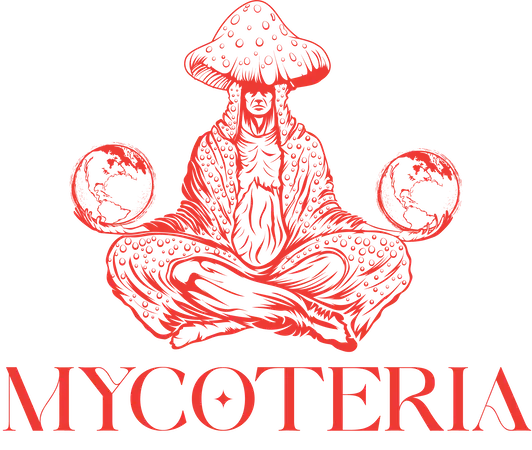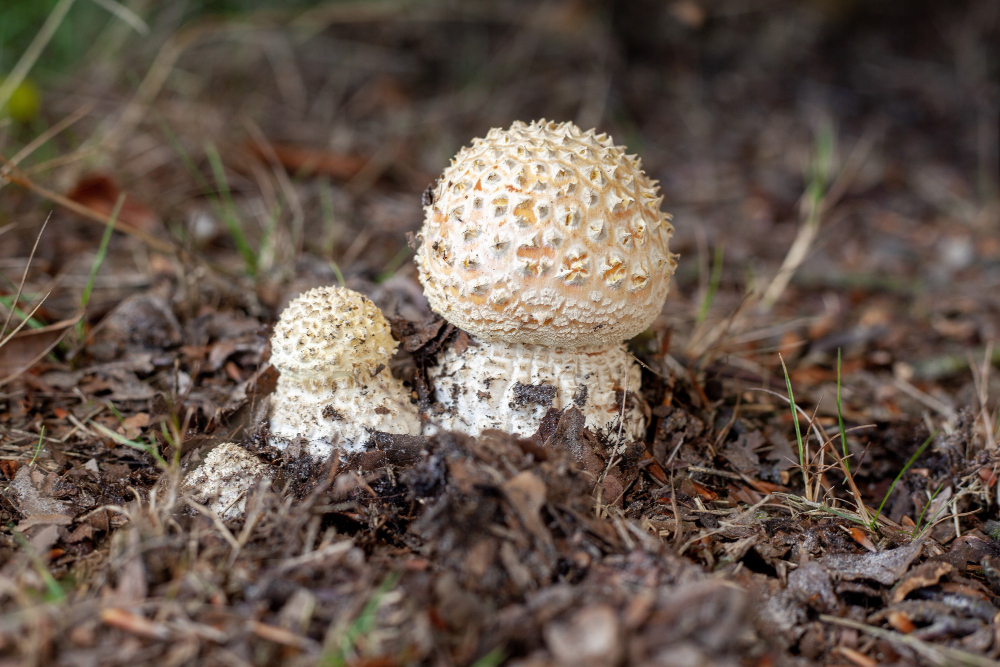Lions Mane Mushroom is a medicinal fungus known for its potential cognitive-enhancing properties, including memory improvement and neuroprotection. It has gained popularity among health professionals and supplement users for its promising benefits.
The potential benefits, important considerations regarding dosage, possible side effects, interactions with existing health conditions, and comparisons to traditional nootropics associated with Lions Mane Mushroom, is explored in this post, below.
Most important facts
- Lion’s Mane mushroom enhances cognitive function and may protect against neurodegenerative diseases like Alzheimer’s and Parkinson’s.
- Recommended dosages include 500-1,000 mg in capsules, 1-3 grams in powder, or 1-2 ml in tinctures daily.
- Mild gastrointestinal discomfort and potential allergic reactions are possible side effects; monitoring is advised.
- Its natural composition offers fewer adverse effects compared to synthetic nootropics, promoting a holistic approach to cognitive enhancement.
- Combining Lion’s Mane with supplements like Rhodiola Rosea or Omega-3 Fatty Acids can enhance cognitive health benefits.
Potential Benefits
Potential benefits of Lions Mane mushroom (Hericium erinaceus) may include enhanced cognitive function, neuroprotection, mood regulation, immune support, and anti-inflammatory effects.
This unique fungus is believed to support brain health through the stimulation of nerve growth factor (NGF) synthesis, which plays an essential role in the maintenance and survival of neurons. Research indicates that Lions Mane may help enhance memory, focus, and overall cognitive performance, making it a subject of interest for those seeking to improve mental clarity.
Moreover, Lions Mane may exhibit neuroprotective properties. Studies suggest that its bioactive compounds may help mitigate neurodegenerative diseases such as Alzheimer’s and Parkinson’s by reducing inflammation and oxidative stress in the brain.
Additionally, preliminary findings indicate that Lions Mane may contribute to mood regulation, potentially alleviating symptoms of anxiety and depression.
Beyond cognitive benefits, Lions Mane is recognized for its immune-boosting and anti-inflammatory effects, which may enhance overall health and well-being. Its rich antioxidant content may further support its role in promoting longevity and cellular health.
Consequently, Lions Mane mushroom presents a multifaceted approach to enhancing both cognitive and physical health, warranting further investigation in clinical settings.
Potential Side Effects
Potential side effects of Hericium erinaceus may include mild gastrointestinal discomfort, such as nausea, diarrhea, or bloating. These symptoms are typically transient and may resolve as the body adjusts to the mushroom.
Allergic reactions, although rare, may occur in susceptible individuals, and symptoms may include skin rashes, itching, or respiratory issues, necessitating immediate discontinuation of use and consultation with a doctor.
Additionally, due to its potential impact on blood sugar levels, individuals with diabetes or those on blood sugar-lowering medications should exercise caution and closely monitor their glucose levels.
Pregnant or breastfeeding women are advised to avoid Lion’s Mane mushroom due to insufficient research on its safety in these populations.
Finally, as with any supplement, it is prudent to consult with a doctor before integrating Lion’s Mane into one’s regimen, particularly for those with pre-existing medical conditions or those taking concurrent medications.
Understanding these potential side effects is vital for informed and safe usage.
Nutritional Information, Calories
A 100-gram serving of Lion’s Mane mushroom contains approximately 35 calories.
Nutritional Composition:
- Protein: About 22 grams per 100 grams of dry mushrooms (excellent non-animal source of essential amino acids).
- Dietary Fiber: Approximately 0.7 grams per 70-gram serving (may contribute to better digestive health).
Vitamins:
- Biotin (Vitamin B7): Provides 57% of the recommended daily value per 100-gram serving.
- Other vitamins may include thiamine, riboflavin, and niacin.
Minerals:
– Rich in potassium, iron, zinc, calcium, phosphorus, magnesium, and manganese.
Bioactive Compounds:
- Contains antioxidants, beta-glucan polysaccharides, flavones, alkaloids, anthraquinones, and phenolic compounds.
- May offer potential health benefits, including anti-inflammatory and immune-supportive effects.
Dietary Considerations:
– Lion’s Mane mushrooms may be a healthy and versatile ingredient to include in a balanced diet focused on weight management and overall health.
Drinking Water: Drinking water is important for maintaining hydration while consuming any dietary supplements or foods.
Consultation for Dosage: Recommended intake may vary depending on individual needs. Please consult with a doctor or your personal trainer before incorporating Lion’s Mane into your diet.
Use and dosage recomendations
Incorporating Lion’s Mane mushroom into your diet may yield numerous health benefits, and understanding proper use and dosage is vital. This medicinal fungus may be consumed in various forms, including capsules, powders, and as a cooked ingredient in meals.
Dosage recommendations may include:
- Capsules: 500 to 1,000 mg per day, taken in divided doses.
- Powder: 1 to 3 grams per day, ideally mixed into smoothies, teas, or soups.
- Tinctures: 1 to 2 ml daily, which may be added to beverages or taken directly.
- Culinary Use: 100 to 200 grams of fresh Lion’s Mane mushroom may be consumed several times a week.
It may be advisable to start with a lower dosage and gradually increase as needed, paying attention to your body’s response.
Drinking water is important while using the supplement. As with any supplement, it’s important to consult a doctor before starting Lion’s Mane mushroom, particularly for individuals with underlying health conditions or those taking medications.
Efficacy Compared to Nootropics
Lion’s Mane mushroom has gained recognition not only for its health benefits but also for its potential cognitive enhancements, distinguishing it from other cognitive-enhancing supplements, particularly traditional nootropics.
Unlike synthetic nootropics that often focus on manipulating neurotransmitter pathways to boost cognition, Lion’s Mane employs a more holistic approach. The mushroom contains active compounds, such as hericenones and erinacines, which promote the synthesis of nerve growth factor (NGF). This may support neuronal health and cognitive function, potentially leading to improvements in memory, focus, and overall mental clarity.
One of the primary advantages of Lion’s Mane over synthetic nootropics is its natural composition. Many stimulant-based nootropics can cause side effects such as anxiety, insomnia, and dependency. In contrast, Lion’s Mane is generally considered to have fewer adverse effects, making it a compelling option for those seeking cognitive support without the drawbacks of traditional stimulants.
Additionally, the neuroprotective properties of Lion’s Mane may contribute to long-term brain health, potentially lowering the risk of neurodegenerative diseases.
However, there are disadvantages to consider. While preliminary studies suggest the cognitive benefits of Lion’s Mane, the current body of evidence is still limited, and more rigorous clinical trials are needed to validate its efficacy compared to established nootropics.
This uncertainty means that individuals may not experience the same immediate and powerful cognitive enhancements that some synthetic nootropics can provide.
In summary, Lion’s Mane mushroom offers a unique, natural alternative to synthetic nootropics, with potential benefits for cognitive function and long-term brain health.
However, the limited research and variability in individual responses necessitate caution. Individuals should carefully evaluate their specific cognitive needs and consult with healthcare professionals before adding Lion’s Mane to their supplement regimen.
Other supplements that goes well with
Combining Lion’s Mane mushroom with other supplements may enhance its cognitive and health benefits, creating a synergistic effect that promotes overall well-being.
Several supplements may work exceptionally well alongside Lion’s Mane, amplifying its effects on brain function, mood enhancement, and immune support.
Consider these complementary supplements:
- Rhodiola Rosea: This adaptogen may help reduce fatigue and improve mental performance, making it a perfect partner for Lion’s Mane.
- Ginkgo Biloba: This ancient herb may enhance blood circulation and cognitive function, potentially boosting the neuroprotective effects of Lion’s Mane.
- Ashwagandha: Another adaptogen, Ashwagandha may help manage stress and anxiety levels, fostering a calm mental state that enhances the cognitive clarity provided by Lion’s Mane.
- Omega-3 Fatty Acids: Found in fish oil, Omega-3s may support brain health and reduce inflammation, synergizing well with Lion’s Mane’s neuroprotective properties.
Incorporating these supplements into your regimen may create a powerful stack that supports cognitive health and overall wellness.
It’s important to consult a doctor before beginning any new supplement regimen.
Frequently Asked Questions
Can Lions Mane Mushroom Be Used in Cooking?
Yes, lion’s mane mushroom may be utilized in cooking.
Its unique texture and mild, seafood-like flavor make it a versatile ingredient in various culinary applications. It may be sautéd, grilled, or incorporated into soups and sauces.
Additionally, it may retain its nutritional properties when cooked, providing both taste and potential health benefits.
When preparing lion’s mane, it is essential to clean it thoroughly and consider pairing it with complementary ingredients to enhance its natural flavor.
Is Lions Mane Mushroom Safe for Children?
The safety of Lion’s Mane mushroom for children has not been extensively studied.
While it is generally considered safe for adults, caution is warranted when introducing any supplement or mushroom to a child’s diet.
Individual reactions may vary, and potential allergies should be assessed.
It is advisable to consult a doctor before offering Lion’s Mane to children, ensuring that any health considerations are appropriately addressed based on the child’s specific needs and medical history.
How Does Lions Mane Mushroom Taste?
The taste of Lion’s Mane mushroom is mild and subtly sweet, with a texture reminiscent of seafood, particularly crab or lobster.
When cooked, it may develop a slightly chewy consistency, making it a versatile ingredient in various culinary applications.
Its unique flavor profile may allow it to complement both savory and sweet dishes, enhancing the overall taste experience while providing a distinct addition to meals that feature mushrooms.
Where Can I Buy Lions Mane Mushroom Products?
Lions Mane mushroom products can be purchased from health food stores, specialty supplement shops, and online retailers.
Notable websites such as Amazon, iHerb, and dedicated supplement brands may offer a range of options, including capsules, powders, and tinctures.
It may be advisable to choose reputable brands that provide third-party testing to guarantee product quality and potency.
Additionally, local farmers’ markets may carry fresh Lions Mane mushrooms, depending on seasonal availability.
Is Lions Mane Mushroom Vegan-Friendly?
Lions Mane mushroom is considered vegan-friendly.
It is a type of fungi that does not originate from animal sources and can be cultivated and harvested without harming animals, aligning with vegan principles.
However, individuals should verify that any products containing Lions Mane may be free from animal-derived additives or processing agents.
It is important to always check product labels and sourcing practices to confirm adherence to vegan standards.
Takeaways
Lion’s Mane Mushroom may offer benefits for cognitive enhancement, neuroprotection, and mood regulation. It may cause mild gastrointestinal discomfort and allergic reactions in some individuals, so caution is advised for certain populations. Recommended intake may range from 1 to 3 grams, with up to 10 grams for certain health goals. However, dosage may vary by individual, so please consult with a doctor before starting any supplements. Further research may be needed to understand its efficacy compared to nootropics and to explore potential synergistic effects with other supplements.
Thank you for reading!






